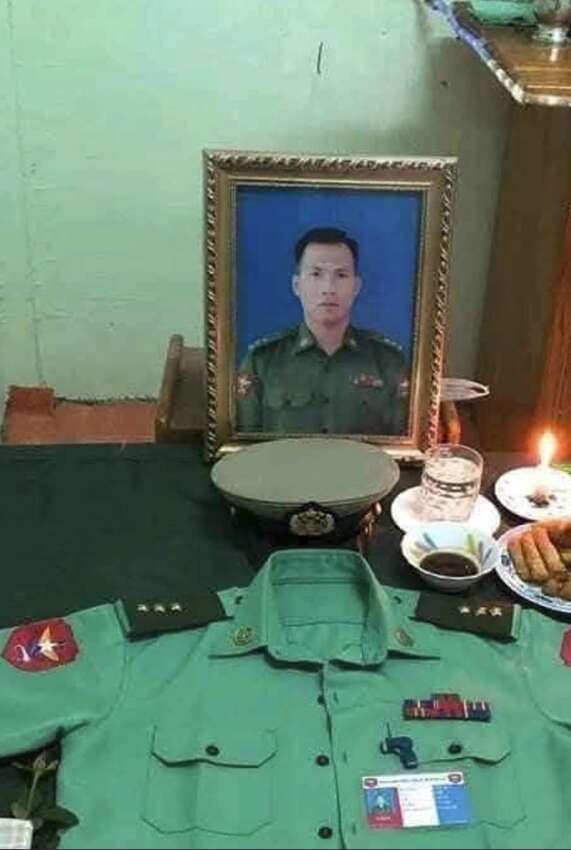
According to military sources in Naypyidaw, when military officers of major rank and above die in combat, they receive immediate funeral expenses and honorary certificates, with benefits including life insurance and pension being processed within three months. For deaths of battalion deputy commanders and majors in combat, they issue honorary certificates and provide a minimum funeral expense of 500,000 kyats. Other benefits such as life insurance payments, lump-sum service payments, and pension rights are processed as special cases within three months.
When majors die in combat, they are promoted posthumously to lieutenant colonel rank, and their pension benefits are increased accordingly to the lieutenant colonel level. However, for deaths from private to captain rank, if bodies cannot be recovered, they are listed as missing and families only receive half salary for six months. After six months, families must apply at military offices for pension and life insurance benefits. This is according to the military council’s regulations.
In practice, the wife of a captain from Support Unit 626 who died during the battle of Lashio has not received any benefits to date because his body could not be recovered. She was allowed to stay in temporary military housing for six months with half salary, but was evicted after six months. More than a year later, she has still not received any benefits. She revealed that higher ranks have dismissed the case, suggesting he may have been taken as a prisoner of war.
The military junta fails to notify families of deaths of soldiers from private to captain rank and new recruits, leaving many families in difficult situations, according to multiple military families. This discriminatory treatment has left lower-ranking soldiers’ families facing both emotional trauma and economic hardship. The stark contrast in treatment between higher and lower ranks has created significant disparities in how military families are able to cope with their losses.



